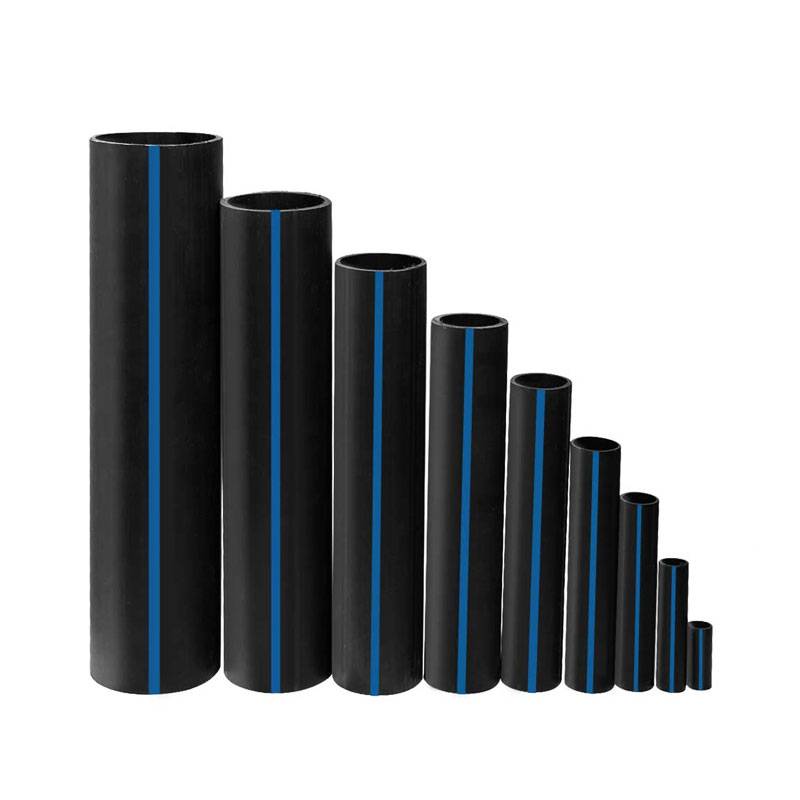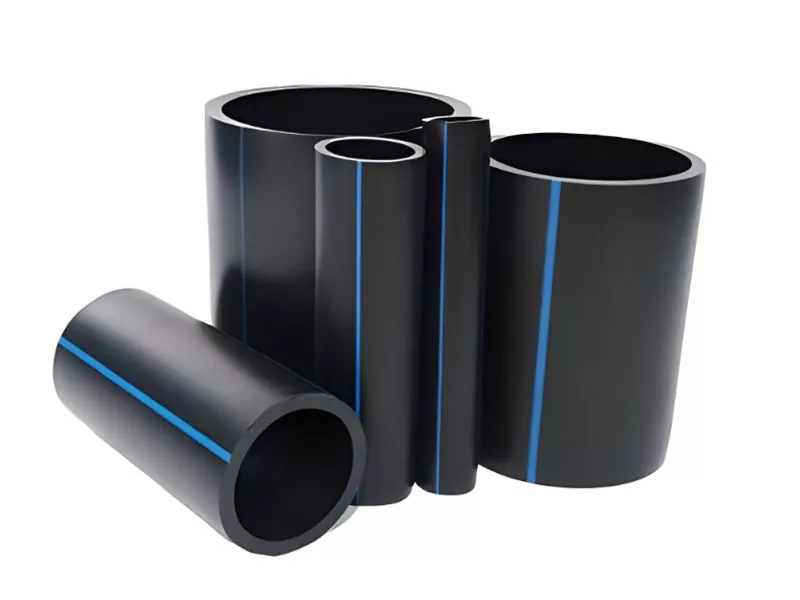Recognizing the Key Conveniences of HDPE Pipeline for Water and Wastewater Monitoring
The usage of HDPE pipeline in water and wastewater administration offers countless benefits that merit consideration. Its phenomenal durability and lengthy lifespan make it a preferred selection for lots of jobs. Furthermore, the material's resistance to deterioration and chemical damages enhances its dependability in different settings. Nonetheless, the advantages extend beyond simply durability and resistance. Exploring its cost-effectiveness and environmental impact discloses even more compelling factors for its widespread adoption in modern-day facilities
Phenomenal Sturdiness and Longevity

HDPE pipe stands apart for its phenomenal toughness and long life, making it a preferred option in water monitoring systems. Constructed from high-density polyethylene, these pipes can hold up against significant pressure and anxiety, ensuring reputable efficiency over time. Their robust nature allows them to withstand severe ecological conditions, including temperature variations and soil motions, which can create other products to fall short.
The lifespan of HDPE pipes usually exceeds 50 years, offering an affordable remedy for districts and markets alike. Furthermore, the product's light-weight properties simplify setup, reducing labor expenses and timeframes. This longevity decreases the requirement for regular repairs or substitutes, better improving its economic allure.
In water monitoring applications, the dependability of HDPE pipelines indicates fewer disruptions and boosted service connection, making them important to sustainable facilities development. The mix of toughness and durability solidifies HDPE's duty as a keystone in effective water monitoring services.

Resistance to Rust and Chemical Damage
While many materials catch rust and chemical damage with time, HDPE pipes display impressive resistance, making them optimal for numerous water management applications. This durability stems from the molecular framework of high-density polyethylene, which is naturally non-reactive and does not corrode like metals or break down from direct exposure to severe chemicals. Therefore, HDPE is extremely reliable in atmospheres with aggressive materials, such as wastewater systems that may contain acids, bases, and organic solvents.
In addition, HDPE pipes can hold up against ecological elements such as soil level of acidity and saline conditions, even more boosting their suitability for diverse applications (hdpe pipe fittings Midland TX). Their capability to preserve structural integrity gradually lowers the threat of leakages and failings, which is crucial in making certain the safety and security and integrity of water circulation and wastewater monitoring systems. Subsequently, the resistance to deterioration and chemical damages substantially adds to the total performance and long life of HDPE piping solutions
Cost-Effectiveness and Economic Benefits
When considering the economic effects of water administration systems, the cost-effectiveness of HDPE pipelines ends up being noticeable. These pipes supply reduced setup and upkeep expenses compared to typical products like metal or concrete. Their light-weight nature simplifies transport and installment, resulting in reduced labor costs. Additionally, HDPE pipelines exhibit a lengthy lifespan, typically exceeding 50 years, which equates to less substitutes and lasting cost savings.
Moreover, the resistance of HDPE to corrosion and chemical damages reduces the demand for costly repair services and replacements. The pipes likewise sustain reliable water flow, lowering energy expenses connected with pumping systems. By minimizing leaks and water loss, HDPE pipelines add to considerable financial benefits for towns and industries alike. Generally, the initial financial investment in HDPE piping can generate considerable monetary returns over the life expectancy of water service line repair the water management system, making it a prudent selection for lasting facilities advancement.
Ecological Sustainability and Lowered Impact

Versatility and Adaptability in Setup
Since of their unique buildings, HDPE pipelines provide amazing flexibility and flexibility in installment, making them appropriate for a large range of applications. Their lightweight nature permits less complicated handling and transport, reducing labor prices and setup time. HDPE pipelines can be curved and formed to fit various surfaces black pipe covers and project demands, which is specifically valuable in challenging settings.
Additionally, their resistance to deterioration and chemical damage permits installation in diverse settings without the requirement for specialized safety finishings. The capacity to fuse joints creates a continual, leak-free system, enhancing the general honesty and reliability of the setup. HDPE's adaptability likewise suits ground movement, decreasing the threat of damage in areas susceptible to changing dirt. In general, these features make HDPE pipes not only flexible yet additionally a preferred option for water and wastewater monitoring systems.
Regularly Asked Questions
Exactly How Does HDPE Pipeline Contrast to PVC in Water Management Applications?
HDPE pipe supplies superior flexibility, resistance to rust, and durability compared to PVC. Its lighter weight helps with much easier installment, while its lengthy life-span reduces replacement costs, making HDPE a preferred option in water administration applications.
What Is the Life Expectancy of HDPE Water Lines Under Common Conditions?
Under regular conditions, HDPE pipes can have a life-span varying from 50 to 100 years. Their durability and resistance to corrosion add to their lasting efficiency in numerous applications, making them a dependable choice for infrastructure.
Are HDPE Pipes Recyclable After Their Solution Life?
Yes, HDPE pipelines are recyclable after their life span. More Bonuses custom hdpe pipe manufacturing Midland TX. They can be processed and repurposed right into brand-new products, greatly lowering ecological impact and advertising sustainability within the sector, making them an eco-friendly selection for piping options
What Is the Setup Refine for HDPE Water Lines?
The installation procedure for HDPE pipes includes site prep work, trenching, pipe blend or mechanical joining, backfilling, and stress testing. Correct methods guarantee a resilient and effective system for transporting water and wastewater properly.
Can HDPE Pipes Be Made Use Of for Both Safe And Clean and Non-Potable Water Systems?
Yes, HDPE pipes can be made use of for both potable and non-potable water systems. Their versatility, durability, and resistance to rust make them ideal for various applications, making sure secure and efficient transport of water in different contexts.